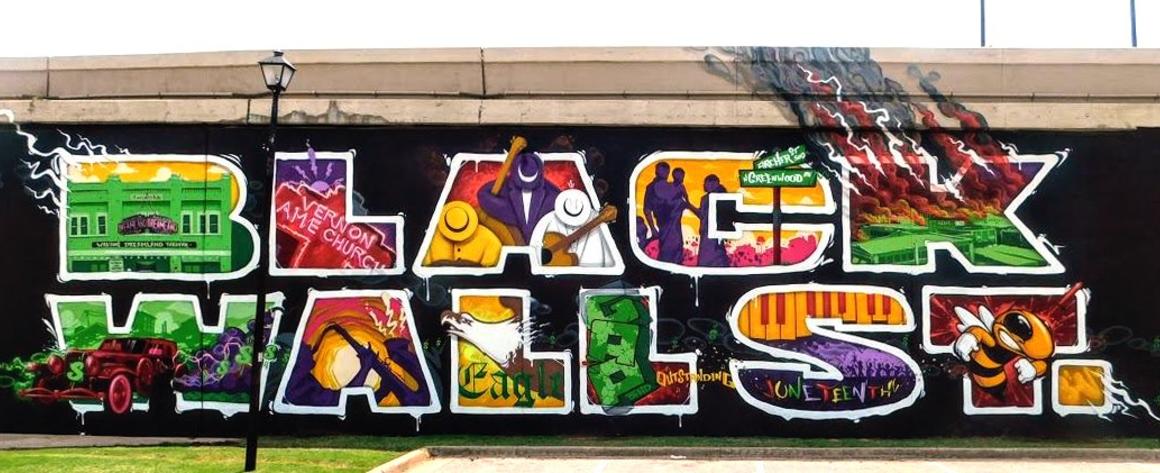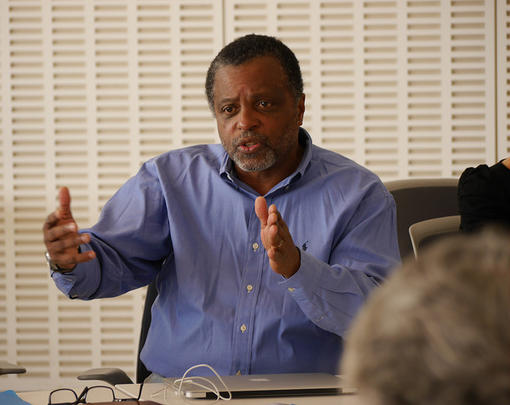Long undisturbed rocks of the American legacy have been overturned in recent years, and with each one, more of the racism that is deeply embedded in the US’s soil is exposed for all of us to confront.
For many Americans, June 1 marked the overturning of one more such rock. A hundred years ago, a white mob violently leveled the thriving ‘Black Wall Street’ community of Greenwood in Tulsa, Oklahoma. An estimated 300 people were killed. Well over 1,200 buildings were destroyed, some by firebombs from private planes. One estimate puts the cost of the damage at more than $200 million in today’s dollars.
Yet this cataclysmic moment in American history—in which victims were not compensated and perpetrators were not punished—was so efficiently buried that decades later even some Black Tulsa residents were surprised to learn this happened. And it was not until 100 years later that a US president, Joe Biden, actually went to the scene of the horror to pay homage to its victims and call the evil out for what it was.
We know that the virulent racism that destroyed Greenwood was not a singular episode but a raging river that has shaped our history and our present in the most fundamental ways—etching barriers to creating a society in which each of us is valued and bonded in a sacred circle of mutuality. Yet, while America’s powerful and privileged have never been shy about redesigning natural landscapes – often in foolish, self-defeating ways—to serve the interests of capital, these same people resist the deep structural and moral excavation needed to undo the corruption racism has done to America’s topology, even as some of them profess a desire for racial equity and reparative justice.
Hence we have what President Biden brought to Tulsa on that day: a set of proposals to address structural racism and its consequences that was at once an exceptional statement of policy and a tragic missed opportunity.
It is true that the proposals to “build Black wealth and narrow the racial wealth gap” are positive attempts to address serious consequences of the US’s structural racism. Initiatives such as funding for tearing down highways that destroyed Black neighborhoods, investigating the wealth theft that occurs through racism in home appraisals, and a $10 billion revitalization fund, which promises to give communities more of a say in how revitalization takes place, are correctives to evils that should never have been allowed to persist into the 21st century.
Collectively, however, they are superficial repairs to a rotted foundation, steps one might take if they did not want to go through the trouble and expense of ripping up the foundation and starting anew. But have we not learned that under our current system new cracks will appear, and without true reparative justice new traumas will be piled on top of the old ones?
America’s racial wealth gap is an already vast chasm that is getting wider, not narrower, especially in the context of the disproportionate economic and health impact COVID-19 has had on Black people. One Brookings study estimates the gap—the additional wealth that would reside in Black households if their share of the wealth matched their share of the population—today at more than $10.1 trillion. That’s almost half the entire country’s gross domestic product. Put another way: in the context of America’s extreme wealth concentration, the richest 400 people in America collectively hold more wealth than all 42 million Black Americans. This gap will never close if we insist on treating the cancer of structural racism with bandages and aspirin.
This is what Dr. Martin Luther King Jr. saw when he concluded in 1967 that it is a fool’s errand to aim to put Black people on an equal footing with White people in a system that is fundamentally morally bankrupt. “We have been in a reform movement,” he wrote then. “But after Selma and the voting rights bill, we moved into a new era, which must be the era of revolution.
“We must recognize that we can’t solve our problem now until there is a radical redistribution of economic and political power… this means a revolution of values and other things. We must see now that the evils of racism, economic exploitation and militarism are all tied together… you can’t really get rid of one without getting rid of the others… the whole structure of American life must be changed.”
America, given the current state of its cultural and political fabric, is clearly not ready to make this step. It is the reason that pronouncements like this from King have been whitewashed from the canon on which his acceptance into American political sainthood is based. But America must make itself ready if it expects to survive as a country worthy of its promise—or to survive its ongoing cold civil war at all.
One place to start is the eminently reasonable—yet to many on the political right unthinkable—task of assessing the transgenerational impact of slavery and systemic racism on Black people and what it would take to repair that damage. That is what is called for in HR 40, a bill sponsored by Rep. Sheila Jackson Lee from Texas that would create a commission to explore reparations. In other words, it calls us to turn over the rocks and reckon with what’s underneath. The House Judiciary Committee approved sending the legislation to the House floor in mid-April. But Republicans are fiercely united against the bill and Democratic leaders are not committed to placing even this meager inquiry process to a full House vote.
Perhaps borrowing a page from Germany might help. That country had to undergo a painful reckoning with the extermination of more than six million Jews during the Holocaust. Washington Post columnist Michele L. Norris recently wrote in-depth about the German process of Vergangenheitsaufarbeitung– the national “working off the past” to reckon with and turn away from the forces that gave rise to Nazism. Notably, Norris writes that this process was not driven by the country’s leadership. “A good deal of the energy that fueled the rise of Vergangenheitsaufarbeitung happened at the grassroots with individuals changing the landscape by literally putting their hands in the soil, digging up the weeds that had grown over abandoned concentration camps and unearthing underground Gestapo torture chambers in the middle of Berlin.”
Germany’s reckoning with its evils is far from complete and far from perfect. We can, though, take one lesson from it: Those of us with a clear-eyed view of how the ground we walk on is shaped by tightly interwoven white supremacy and capitalism have to step to the front of the fight for reparative justice and true racial equity with sharp vision and relentless energy. Success will be a long-haul struggle, and yet, we are running out of time. Our racial crisis coincides with a climate crisis that is forcing us to choose within this decade between our addiction to fossil-fueled growth and our ability to survive on a habitable planet. It also coincides with the crisis of neoliberalism, which has bred extreme wealth inequality and fueled the disillusionment that is helping to break the underpinnings of democracy.
We are thus confronted with what King called “the fierce urgency of now” with our focus on the North Star of “revolution,” a pulling up of the intertwined roots of racism, economic exploitation and militarism and a detoxification of the soil so that new, more wholesome growth is possible. How much has to change? All of it. But we have no choice but to be undaunted. Together, we actually can—and will – win.




